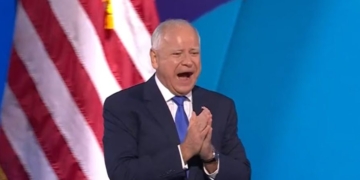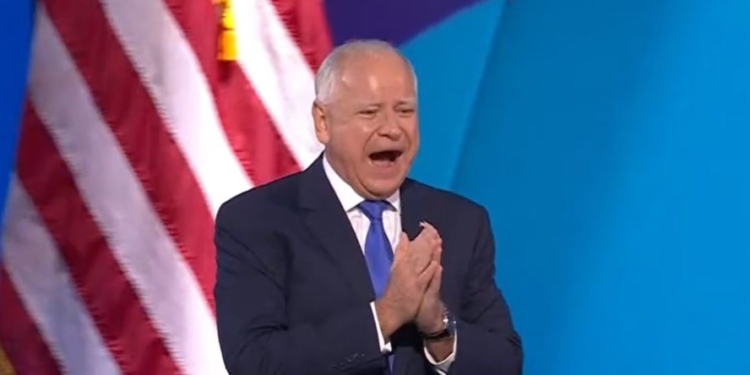Democratic vice presidential nominee and Minnesota Gov. Tim Walz signed a $2.3 billion educational spending bill in 2023 meant to improve his state’s school system, but recent data indicates the deluge of cash has failed to boost test scores.
The legislation Walz signed resulted in the largest education investment in Minnesota’s history, with the governor promising the investment would “improve child literacy” while also including measures like a requirement that school districts create an “ethnic studies” curriculum and greater funding for pre-k education. The latest round of state test scores, however, show little change from last school year as roughly half of public school students failed to meet grade-level standards, The Minnesota Star Tribune reported.
“Long-term key investments from the 2023 legislative session are currently being implemented, including the largest funding increase for K-12 education in state history,” an August 29 Minnesota Department of Education press release explaining the lack of movement on educational metrics reads. “Once fully implemented, these investments will positively impact students for many years to come.”
Roughly 60% of Minnesota public school students met state reading standards when Walz took office in 2019, and about 55% were proficient in math, according to the Minnesota Reformer. As of 2024, however, just half of students are proficient readers, and 45% meet state math standards, despite the billions flowing into Minnesota schools.
Most states saw test scores decline during the pandemic, however, the dip in Minnesota was considerably worse than the national average, according to The Washington Post. For instance, the state went from having fourth-grade math scores that were 10 points above the national average in 2015 and 2017, to its fourth graders only scoring four points above the national average in 2022.
Much of the $2.2 billion apportioned by Walz and Minnesota Democrats went directly to school districts, a cash windfall the governor characterized as “the Minnesota Miracle 2.0,” a throwback to well-received school finance reform the state underwent in the 1970s, according to the MinnPost. Even with the large influx of cash, many school districts in the state have found themselves facing deficits, with Minneapolis Public Schools expecting a $116 million budgetary shortfall.
The ethnic studies initiative included in Walz’s spending bill requires first graders to “identify examples of ethnicity, equality, liberation and systems of power” and “use those examples to construct meanings for those terms.” Students in high school, meanwhile, must “develop an analysis of racial capitalism” and “anti-Blackness” while being critical of “dominant European beauty standards.”
The Harris campaign and the Minnesota governor’s office did not immediately respond to the Daily Caller News Foundation’s requests for comment.
All content created by the Daily Caller News Foundation, an independent and nonpartisan newswire service, is available without charge to any legitimate news publisher that can provide a large audience. All republished articles must include our logo, our reporter’s byline and their DCNF affiliation. For any questions about our guidelines or partnering with us, please contact [email protected].



























 Continue with Google
Continue with Google